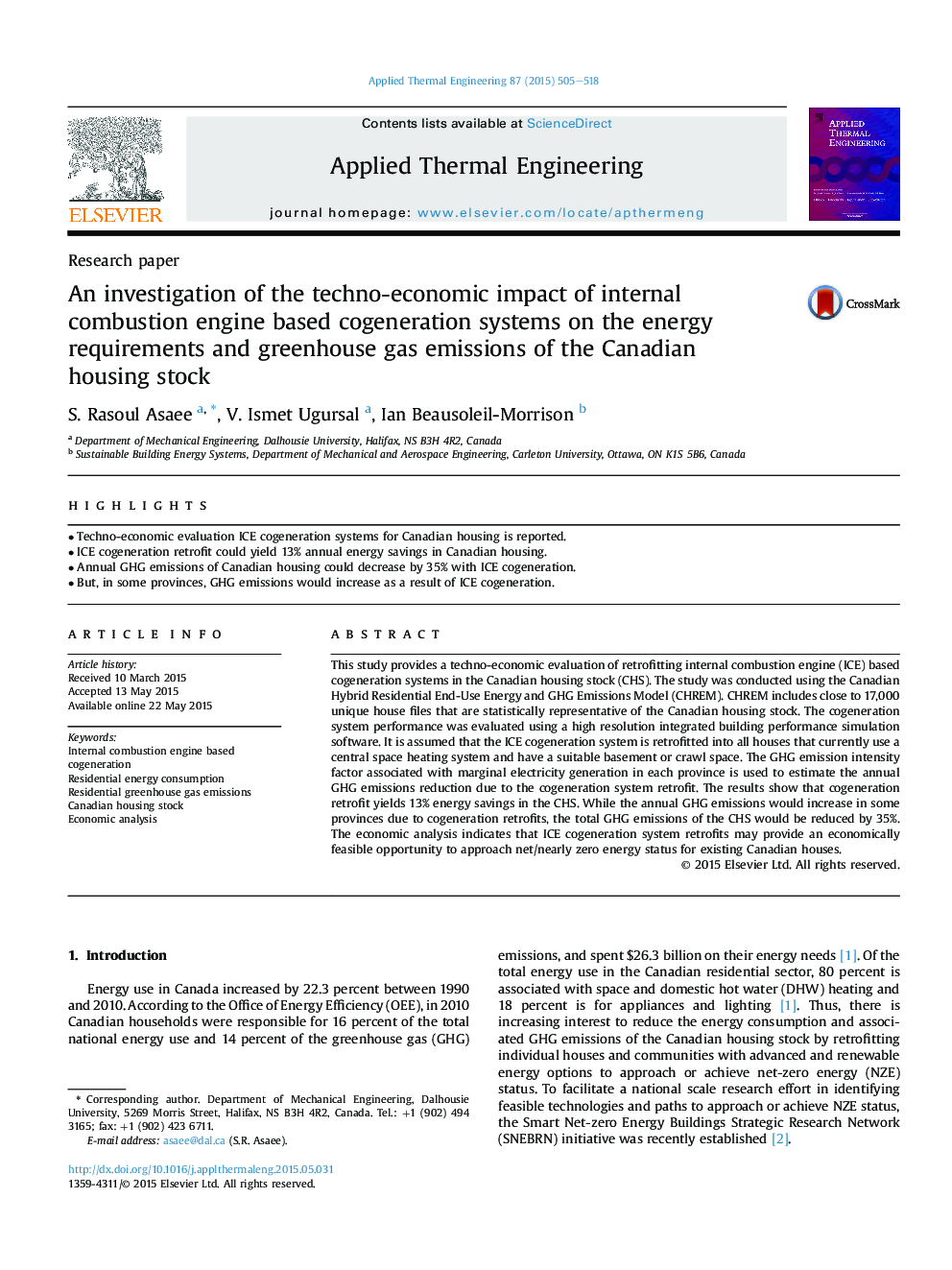| Article ID | Journal | Published Year | Pages | File Type |
|---|---|---|---|---|
| 645249 | Applied Thermal Engineering | 2015 | 14 Pages |
•Techno-economic evaluation ICE cogeneration systems for Canadian housing is reported.•ICE cogeneration retrofit could yield 13% annual energy savings in Canadian housing.•Annual GHG emissions of Canadian housing could decrease by 35% with ICE cogeneration.•But, in some provinces, GHG emissions would increase as a result of ICE cogeneration.
This study provides a techno-economic evaluation of retrofitting internal combustion engine (ICE) based cogeneration systems in the Canadian housing stock (CHS). The study was conducted using the Canadian Hybrid Residential End-Use Energy and GHG Emissions Model (CHREM). CHREM includes close to 17,000 unique house files that are statistically representative of the Canadian housing stock. The cogeneration system performance was evaluated using a high resolution integrated building performance simulation software. It is assumed that the ICE cogeneration system is retrofitted into all houses that currently use a central space heating system and have a suitable basement or crawl space. The GHG emission intensity factor associated with marginal electricity generation in each province is used to estimate the annual GHG emissions reduction due to the cogeneration system retrofit. The results show that cogeneration retrofit yields 13% energy savings in the CHS. While the annual GHG emissions would increase in some provinces due to cogeneration retrofits, the total GHG emissions of the CHS would be reduced by 35%. The economic analysis indicates that ICE cogeneration system retrofits may provide an economically feasible opportunity to approach net/nearly zero energy status for existing Canadian houses.
